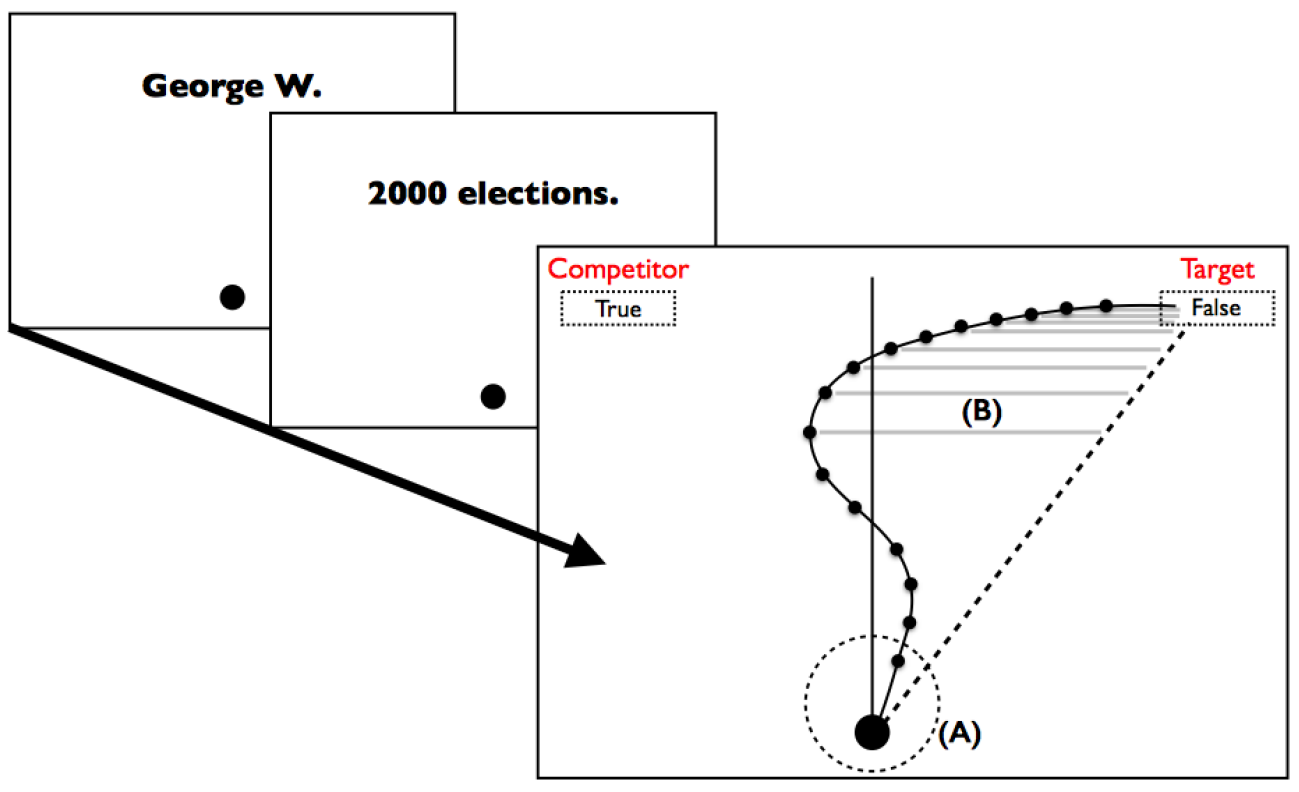Department Chair Professor Stephen Nicholson's paper "The Hidden Appeal and Aversion to Political Conspiracies as Revealed in the Response Dynamics of Partisans" has just been accepted at the Journal of Experimental Social Psychology. Congratulations Professor Nicholson and co-authors!
The study captures subtle processing dynamics that occur when people endorse or disavow political conspiracies by using a mouse-tracking paradigm. The study reveals that participants' arm movements as they provided “true” or “false” answers to political conspiracy statements, are modulated by whether participants identified with the Republican or Democratic parties. Political conspiracies may tap into hidden biases at odds with each other, such that, even for nonbelievers of a particular conspiracy, there is an implicit appeal for ideologically-aligned conspiracies driven by motivated reasoning biases, and for believers, an implicit aversion to the same conspiracies driven by accuracy and self-presentation needs.


